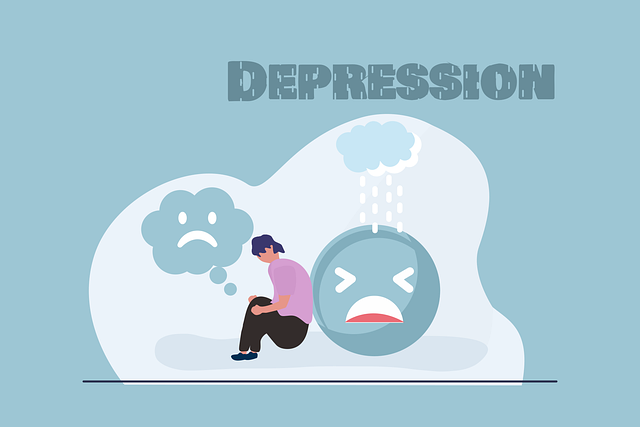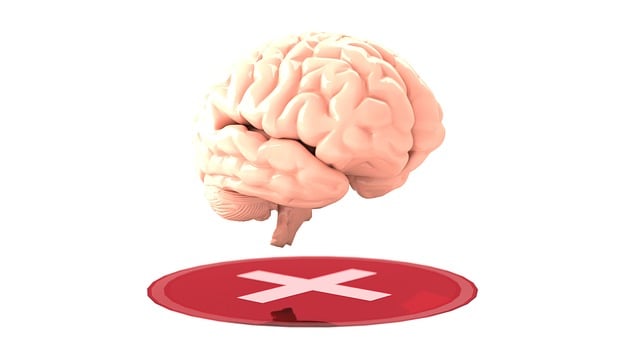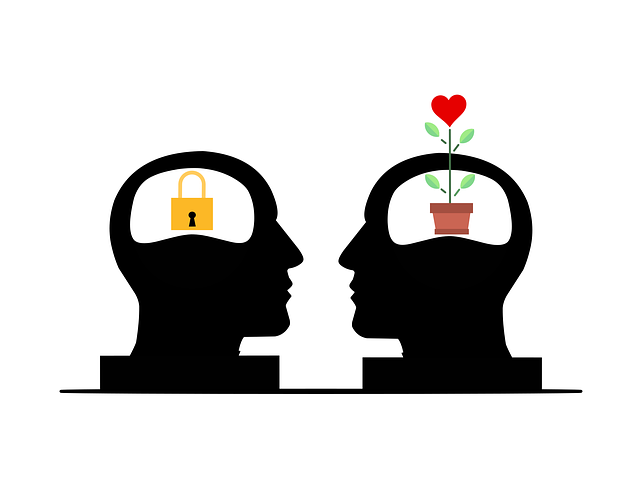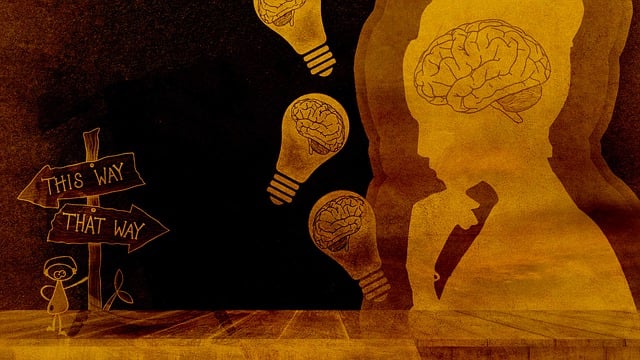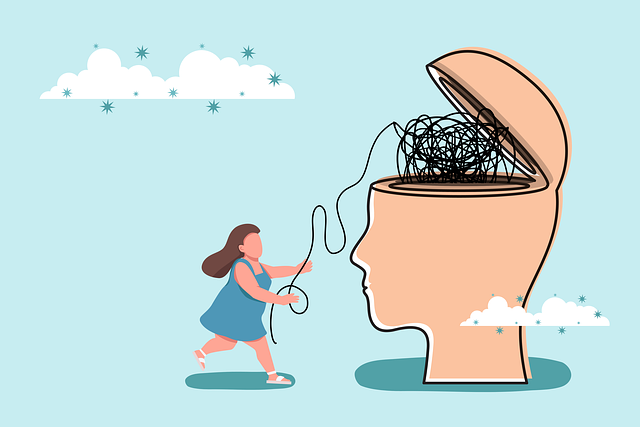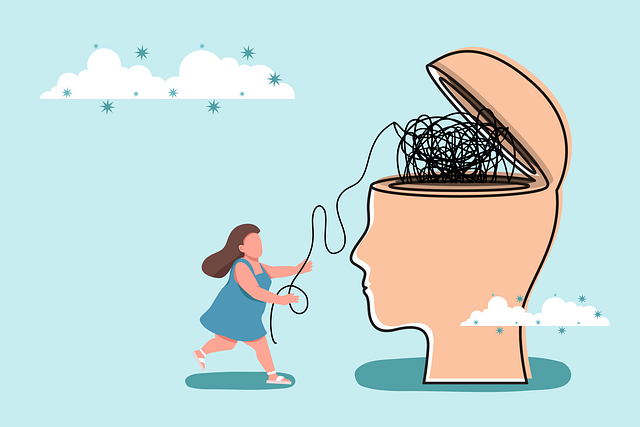Emotional intelligence (EI) is a powerful tool for personal growth, especially beneficial for those with Aurora Oppositional Defiance Disorder (AODD). AODD therapy focuses on mood management, emotional regulation, cultural sensitivity, and relationship building. By improving emotional awareness and regulation through cognitive-behavioral techniques, mindfulness, and positive affirmations, individuals with AODD can reduce oppositional behavior and navigate life more effectively. This holistic approach enhances self-esteem, fosters empathy, and enables individuals to lead fulfilling lives through improved mental health outcomes.
Emotional intelligence (EQ) is a powerful tool for personal growth, yet many struggle with its development, especially those affected by Aurora Oppositional Defiance Disorder (AODD). This article delves into the significance of EQ and its impact on daily life. We explore AODD, its relationship with emotional regulation, and how therapeutic approaches can enhance EQ in patients. Additionally, practical strategies for daily application are provided to foster long-term emotional growth and improve overall well-being.
- Understanding Emotional Intelligence and Its Significance
- Identifying Aurora Oppositional Defiance Disorder (AODD) and its Impact on Emotions
- Therapeutic Approaches to Enhance Emotional Intelligence in AODD Patients
- Practical Strategies for Daily Application and Long-term Growth
Understanding Emotional Intelligence and Its Significance

Emotional intelligence (EQ) is a powerful tool for personal growth and understanding others. It involves recognizing, managing, and effectively utilizing one’s own emotions while also empathizing with and navigating the feelings of those around them. EQ transcends mere social skills; it’s about cultivating self-awareness, emotional regulation, motivation, and empathy—key components that contribute to successful relationships and overall well-being. For individuals with Aurora Oppositional Defiance Disorder (AODD), building emotional intelligence can be transformative through therapy.
AODD is characterized by frequent arguments, defiance, and irritability, often stemming from difficulties in mood management and emotional regulation. Aurora Oppositional Defiance Therapy focuses on enhancing these areas, fostering cultural sensitivity in mental healthcare practice. By learning to recognize and manage their emotions, individuals with AODD can improve their interactions, build stronger relationships, and successfully navigate various aspects of life, including community outreach program implementation. This holistic approach not only addresses symptoms but empowers individuals to lead more fulfilling lives.
Identifying Aurora Oppositional Defiance Disorder (AODD) and its Impact on Emotions

Aurora Oppositional Defiance Disorder (AODD) is a mental health condition characterized by recurrent and persistent patterns of oppositional and defiant behavior. This disorder often presents during childhood or adolescence, impacting an individual’s emotional well-being and relationships. Recognizing AODD is crucial as it can significantly affect how individuals manage and express their emotions.
Individuals with AODD may struggle with regulating their feelings, leading to frequent temper tantrums, arguments with authority figures, and a general reluctance to comply with rules or requests. Such behavior can create challenges in various settings, from homes and schools to social gatherings. However, with the right support, Aurora Oppositional Defiance Disorder therapy plays a pivotal role in fostering resilience building and empathy-focused strategies. By learning positive thinking techniques, individuals can enhance their emotional intelligence, navigate interpersonal interactions more effectively, and improve overall mental health outcomes.
Therapeutic Approaches to Enhance Emotional Intelligence in AODD Patients

Emotional intelligence building is a key aspect of Aurora Oppositional Defiance Disorder (AODD) therapy, focusing on empowering individuals to understand and regulate their emotions effectively. Therapeutic approaches tailored for AODD patients often involve cognitive-behavioral techniques aimed at challenging negative thought patterns and promoting healthier emotional responses. These strategies help individuals recognize and accept their feelings, fostering a deeper connection with their inner selves.
Through structured therapy sessions, AODD patients can learn valuable skills such as mindfulness and self-awareness, which play pivotal roles in enhancing emotional intelligence. Mindfulness practices enable them to stay present, observe their emotions without judgment, and make more thoughtful decisions. Simultaneously, building inner strength through positive affirmations and confidence-boosting exercises empowers individuals to navigate challenging situations with greater resilience, improving their overall mood management capabilities.
Practical Strategies for Daily Application and Long-term Growth

Emotional intelligence (EI) is a skill that can be cultivated and enhanced through daily practice. For individuals navigating challenges like Aurora Oppositional Defiance Disorder (AODD), implementing practical strategies offers a path to long-term growth and improved well-being. One effective approach is integrating compassion cultivation practices into daily routines. Mindfulness exercises, for instance, encourage self-awareness and empathy, helping to regulate emotions and build stronger relationships.
Additionally, coping skills development plays a pivotal role in managing stressors and emotional triggers. Techniques such as deep breathing, cognitive reframing, and engaging in physical activity can provide healthy outlets for expression and release. Simultaneously, focusing on self-esteem improvement is integral to EI development. By challenging negative self-talk and setting achievable goals, individuals with AODD can foster a positive sense of self, enhancing their ability to navigate emotional landscapes with resilience and adaptability.
Emotional intelligence building is a multifaceted process that, when effectively implemented through therapeutic approaches tailored for Aurora Oppositional Defiance Disorder (AODD), can significantly enhance patients’ lives. By understanding AODD’s impact on emotions and employing practical strategies for daily application, individuals with this disorder can develop greater self-awareness, empathy, and emotional regulation skills. These efforts not only contribute to improved relationships but also foster long-term personal growth and well-being. In the context of AODD therapy, focusing on emotional intelligence is a game-changer, offering a path towards a more balanced and fulfilling life.
